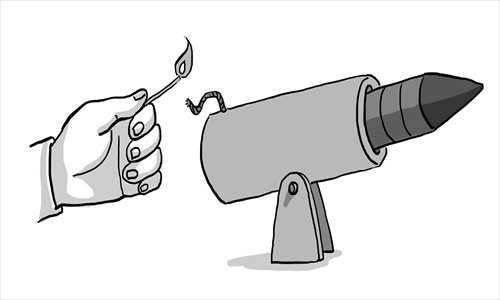Lives can come before nukes for NK

North Korea announced its third nuclear test plan one day after a UN Security Council resolution condemning its recent rocket launch. It also claimed that the test would be aimed at the US.
The intensity of the North Korean response is not surprising.
The UN resolution represents a sharp and very public rebuke and warning that future provocative acts will not be downplayed or ignored by the international community. The focus on the US is an attempt at saving face and a deflection of the anger North Korea feels about the solidarity that exists within the UN Security Council and the support that China and Russia have given to the resolution.
The US has condemned North Korea's threat. It may caution against more provocations and reaffirm its willingness to participate in a serious diplomatic effort to reduce North Korean threats and WMD capabilities.
The US will also push for stricter implementation of the sanctions, including the measures that have been built into this new resolution.
In this regard, all eyes will be on China to see if there is meaningful tightening of the implementation of the sanctions when it comes to cross-border trade with its neighbor.
If North Korea does proceed with a third nuclear test, they will pay a large price economically.
They have made improving the economy a top priority this year and have made public commitments domestically about improving the livelihood of ordinary people.
But North Korea will not be able to make any meaningful improvements in the economy without foreign trade and investment. This now comes largely from China.
It is hard to imagine that foreign investors will be willing to come to North Korea anytime soon if there is a third nuclear test, and especially if the Chinese government supports adding even more sanctions in a new UN Security Council resolution, as would be inevitable in the case of such a provocative action.
Also, reestablishing a more robust economic relationship with the new South Korean government would be impossible for the foreseeable future if there were to be a new nuclear test.
The population of Pyongyang has come to experience significant improvements in their daily living in recent years, driven in part by the expanding trade with China, widespread access to cell phones, and the growing importance of markets in meeting consumer needs.
Putting the emerging elite middle class in a situation of more economic hardship at this juncture would be a risky policy given their rising expectations of economic improvement.
North Korean feelings of insecurity, coupled with a need to bolster national pride and promote regime legitimacy, are important factors in a decision whether to conduct a third nuclear test.
But this is not a realistic way to achieve long-term security. The answer to meeting North Korea's long-term security and prosperity aspirations would be a serious effort to pursue a peace accord to settle old disputes and forge a framework for economic as well as security cooperation that recognizes the legitimate interests of all concerned parties.
The article was compiled by Global Times reporter Wang Wenwen based on an interview with Bradley Babson, chair of the DPRK Economic Forum at the US-Korea Institute at Johns Hopkins School of Advanced International Studies. wangwenwen@globaltimes.com.cn